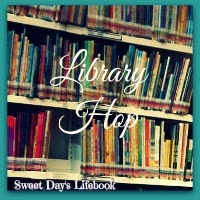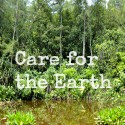This month, we are going to hop to the Central Library.
Central Library holds the first green library for children. It is so meaningful to blog about it this month, isn't that so? Meanwhile, I shall be blogging probably for a couple of months on environmental issues. So, to start the ball rolling with Central library. How green exactly is the library?
 |
| National Library building evening shot |
History
Located at 100 Victoria Street, the basement of the National Library Building, the Central Library is full of history. It was first started by Sir Stamford Raffles in 1823 as a library to support the educational aim of Singapore Institution (Now known as Raffles Institution)
This library never had its own building till 1950s. It was officially open 12 November 1960 by the President Yusof bin Ishak. Mr Lee Kong Chian had contributed 16% of the total cost of the building then. The building was formerly at Stamford Road but had since closed on 1st April 2004. The building is being demolished to make way for a road tunnel and SMU.
The new building at Victoria Street was opened to public on 22 July 2005 and officially opened on 12 November 2005 by President S. R . Nathan. Central Library occupies the basement of the building, covering a floor area of 6,407 square metre. It shares the building with the Drama Centre managed by National Arts Council.
Over the years, the library collection builds up. It provides a wide collection of books, it also contains the largest collection of fiction books compared to the rest of the Public libraries. Being close proximity to schools such as SMU and NAFA, it also holds a good collection of Business and Designs and Creativity titles.
The World's first Green Library for children is found here too.
How green is the library?
To begin with, let's start with the library building. Just to list some eco-friendly features
1) Glass panels to let in natural lights , reduce the usage of indoor lighting
2) Light shelves to reflect lights deeper into the building
3) Incorporating environmentally-friendly technologies such as smart sensors to reduce energy consumption.
- Rain sensors -> reduce amount of water required to water plants during rainy days.
- Light sensors -> dim or switch indoor light when there is enough natural lights
- Motion sensors within escalators and taps-> switch on only when in use.
The Central Library
 |
| What a green idea! You can recycle your used cartridges here |
When you enter you would be greeted by recommended books in cardboard book stand (left) and sustainable light display (right)
 |
| Ongoing Exhibition, Moments of Motherhood, mixed media showcase by Paulina Constancia |
I spotted shelves and shelves of books on knitting and crocheting.
 |
| A wide range of books on knitting |

The Tree House
A closer look at this centrepiece. The leaves are made from recycled plastic bottles. An fantastic recycling project for display.
 |
| Children loves to climb up this tree to read books too |
30 % of the books located at the Children's section focus on green topics such as animals, plants, nature, water resources, weather, environment, recycling and climate change. A good place to choose books to educate youngsters about nature.
Paper crafts
 |
| E reading kiosks. Plants are spotted behind |
 |
| Mushroom shelf display at the Cosy Reading Corner |
 |
| A cute craft spotted |
Non fiction book recommendations for pre-schoolers.
Since we are in a green library, why not read some green books?
I picked the following books from the library to read to little one. Getting her to know plants and animals of which many we have never seen before in real life.
The first 2 books are borrowed from the Central Library. You may get them in other branches as well.
I like the idea of introducing something familiar to little one. We all wear T-shirts. Where do they come from? What happen if they were old? Do you simply discard them? Or should we start to recycle them instead? Hopefully by introducing these 2 books she would treasure her own clothes more. She prefers to wear dresses and would reject pants or shorts. More than often, we realise she outgrows the T-shirts, blouses, shorts and pants after wearing a few times. By introducing how clothes come about, hopefully, she would learn to treasure more and not waste what Mother Earth had provided.

1) From Cotton to T-shirt by Robin Nelson
This is suitable to preschoolers. I have never seen a cotton plant in my life. This is fantastic! It describes in simple sentences how a T-shirt is made from fruits (cotton bolls) of cotton plants.
2) Old Clothes by Daniel Nunn
A pretty informative book describing what happen to old clothes when we dump them away. The book introduces recycling to children in simple sentences. The book also give you some ideas how to reuse old clothes. They also give instructions on how to make your own sock puppet.
3) Tropical Rain Forest by April Pulley Sayre, published by Scholastic
I love Scholastic books, they are informative and yet simple to read to children. Although my little one may not grasp the concept of rain forest. This is a good brief introduction to what a rain forest is and what deforestation is. Little one loves to flip through the pages and ask about the name of the plants and animals.
Address
100 Victoria Street
Singapore 188064
Bookdrop: 24-hour
How to get there
Nearest MRT: Bugis, City Hall MRT Station
Bus Interchange:
Buses: 145, 197, 32, 51, 63, 7, 80 175 , SMRT 851, 61, 851, 61
If you have been enjoying reading our posts, like us on facebook
Linking with
This post is part of the "Care for the Earth" series
- Care for the Earth (introduction)
- Our Green Library and Recommended Green Books.
- Muse
- Making a Pinhole Camera (Craft)
- DIY card holder (Craft)
- "Lungs of the World" in Singapore
- Making a Yoyo Button Hair Accessory (Craft)
- A different birthday- a more down-to-Earth approach
- Celebrating Earth Day













I've taken my girl to the kids corner at the National Library once. Gorgeous space.
ReplyDeleteYes, I agree! Thanks for commenting, Michelle!
Delete